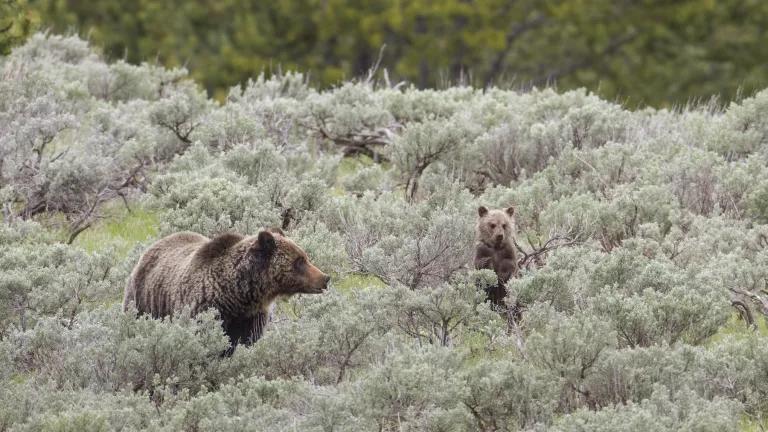NRDC and Partners Threaten Lawsuit Over Pangolin Protections

The Trump administration has failed to act on illegal trade in pangolins, the most trafficked mammals on earth.
The Center for Biological Diversity, Born Free USA, Humane Society International, Humane Society of the United States, and NRDC today filed a notice of intent to sue the Trump administration for failing to propose pangolin protections under the U.S. Endangered Species Act after a petition was submitted four years ago.
Pangolins, sometimes described as “legged artichokes,” are the most-traded mammals on earth, with one million trafficked between 2004 and 2014 for their scales (used in traditional Asian medicines) and their meat (consumed as a delicacy in some Asian countries). That’s more than 300 pangolins traded every day.
Fortunately, the global community has picked up on the fact that pangolins, which reside in Asia and Africa, are in dire need of help. For this reason, the parties to the Convention on International Trade in Endangered Species (CITES) banned the international commercial trade in pangolin parts in 2016.
But illegal trade remains rampant, and the species has continued to decline, with headlines describing massive seizures of pangolin parts seemingly every day. Just this year, 28 tons of pangolin scales—harvested from at least 17,000 pangolins—were seized during two busts in Singapore, another 33 tons of scales and bodies were seized in Malaysia, and countless other pangolins have fallen prey to poachers and traffickers.
A listing under the Endangered Species Act is one of the most impactful ways the United States can help conserve pangolins, given that illegal pangolin parts definitely end up here (though Asia is the primary market). At least 26,000 imports of pangolin products were seized in the United States between 2004 and 2013, and a 2015 report by Humane Society International found “medicinal” products containing or likely to contain pangolin parts openly for sale online and at U.S. stores. When I visited the U.S. Fish and Wildlife Service Forensics Laboratory in Ashland, Oregon, a few years ago, taxidermied pangolins, pangolin bodies, bags of pangolin scales, and a scale-encrusted African tribal headdress were among the confiscated items being tested.
If pangolins were protected as endangered under U.S. law, the import and interstate sale of pangolins and their parts would be prohibited in the United States. A listing would also make funding available to further protect the animals via anti-trafficking and habitat conservation efforts, among other avenues. And it would heighten global awareness about the importance of conserving this unique but fragile species.
Of course, much, much more must be done to save pangolins, especially in Asia, and some new efforts seem to be underway. China has signaled it will uplist pangolins to the highest possible status (class 1) under its wildlife protection law, which would prevent the sale and use pangolins and pangolin products absent certain circumstances, such as scientific research—a vast improvement. China also announced, at this year’s CITES meeting, an important decision to stop covering traditional Chinese medicines using state health insurance funds (so if you want medicine containing pangolin scales, you’ll have to pay for it yourself).
This lawsuit is just one small part of a difficult puzzle we’re piecing together to save pangolins from extinction. But as with a puzzle, every piece counts.




